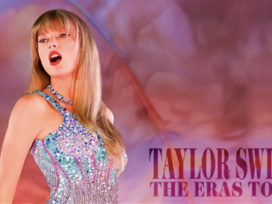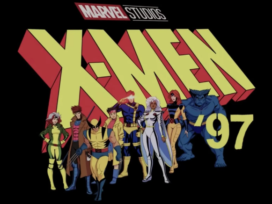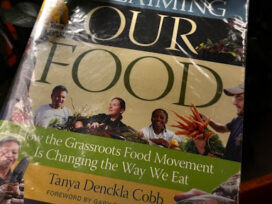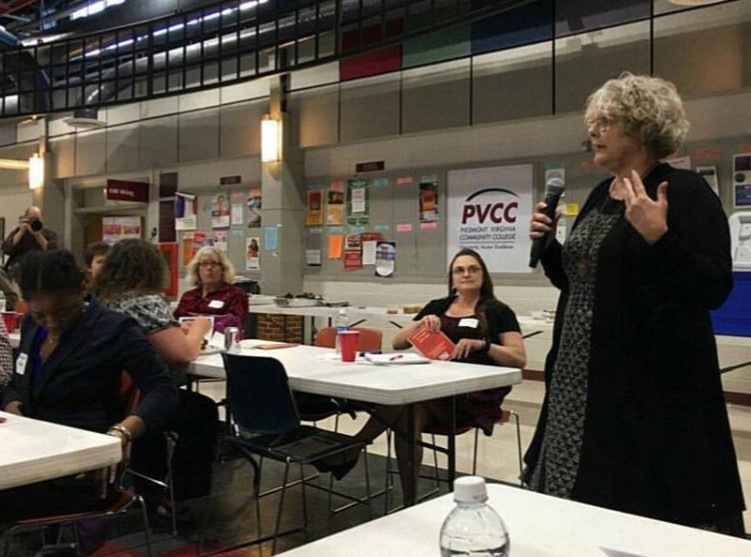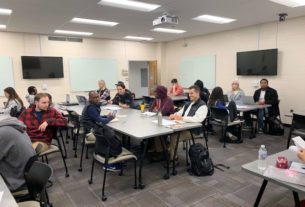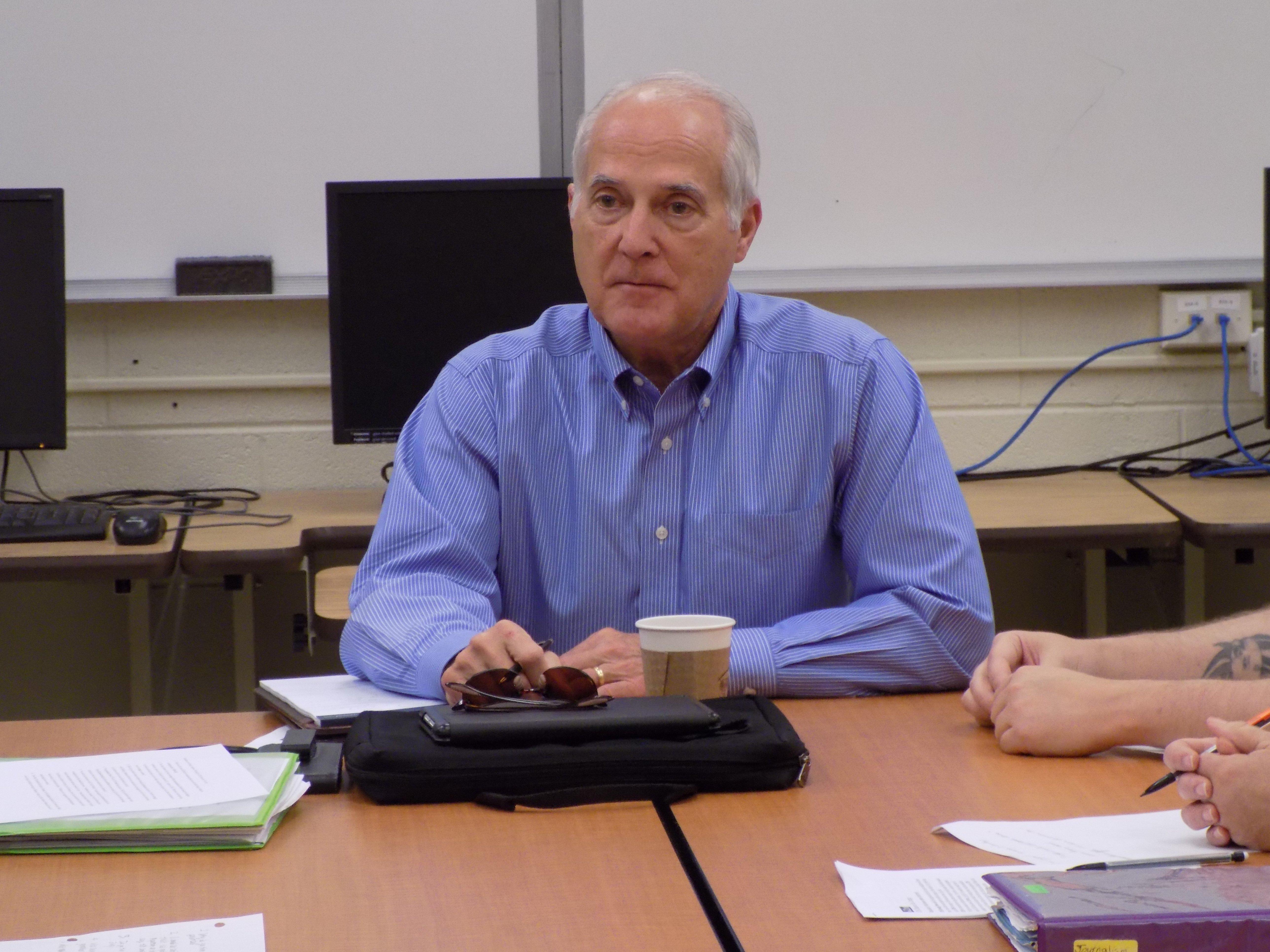
Retired CBS News Correspondent Imparts Wisdom to Journalism Class
Antonia Florence, assistant editor
Joe Fowler, online editor
Former CBS news correspondent Wyatt Andrews spoke with Dr. Tamara Whyte’s journalism students April 20 to provide advice on how to improve their reporting skills. Andrews obtained a Bachelor of Arts in Government and Foreign Affairs from the University of Virginia where he graduated with honors in 1974. His venture into media began at U.Va and then transitioned into the Charlottesville area and later in Richmond, which eventually led to positions in Miami and Orlando, FL.
Andrews eventually secured a job at CBS news where he held a variety of positions for over 30 years. Throughout his career, he has won a wide array of awards including two local Emmy awards and three national Emmys.
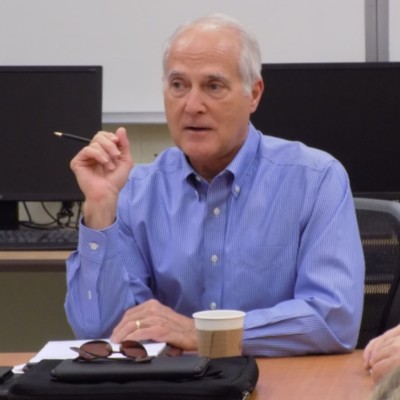
His first words to the journalism students of Piedmont Virginia Community College reflected a spirit of unity rather than pride in his many successes.
“I am one of you. I grew up just as many of you, no money or privileges,” said Andrews. After a brief introduction, Andrews opened the floor for discussion. Students asked questions about his experiences and his perspective on the current state of journalism. In a gesture most journalists are familiar with, Andrews took notes in a small notebook. He briefly responded to each question, often revisiting previous questions and addressing the students who asked them by name, creating an atmosphere of familiarity as though a group of peers had gathered to discuss the craft of investigative journalism.
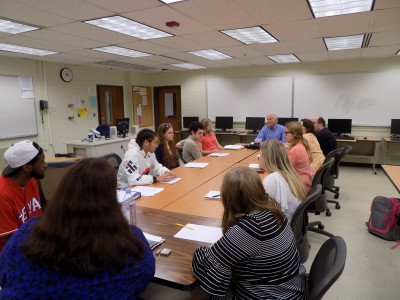
The interactive discussion included topics pertinent to journalistic media and its recent evolution. “The media is changing rapidly,” said Andrews. Journalistic endeavors today can all be done from a desk equipped with a computer and telephone. But just because it can be done, does not mean it is the best way or even the most effective way. “You still need that face-to-face interaction,” said Andrews.
Body language and tonal inflection gives just as much information as words, said Andrews. As if to illustrate the point, one of the assistant editors of The Forum brought up a 2008 article Andrews wrote comparing John Mccain’s and Barack Obama’s tax break figures. How does a journalist handle a situation of being asked to manipulate facts knowingly or unknowingly or even dealing with false equivalency?
Andrews’ cheeks puffed out, his eyes seemed to burn and his face reddened. With a restrained voice he answered, “I have never had a bad conscience day. I stand by every word I wrote in that piece.” Andrews did acknowledge his supervisor asked him to present the same amount of positive facts for each candidate to prevent any potential bias.
As the discussion continued to the current quality of media coverage, Andrews said that not every article a news outlet releases consists of original journalism. Many times a news company picks up original pieces off the wire and paraphrases them. This is not reporting, according to Andrews. Nobody exerted any effort. Andrews suggested tracing such articles back to their sources such as the Associate Press (AP) or Reuters to check for the byline of the person who originally wrote the piece.
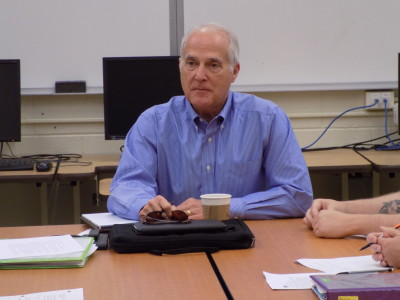
To emphasize the importance of first-hand coverage, Andrews told the story of his time as the CBS foreign correspondent to Asia, embedded in Tokyo when he received a call from CBS telling him to get to New Delhi immediately. Once in New Delhi, Andrews reported on the Mahatma Gandhi assassination and the ensuing discord between the Hindus and Sikhs. Andrews won a national Emmy for his coverage.
On a smaller scope, reporters for The Forum adhere to the same principles Andrews spoke about with his coverage of Gandhi. Every article published by the venue involved a reporter attending an event, visiting a locale or talking face-to-face with someone associated with or otherwise qualified to speak on the subject matter of the article. Though current Forum journalists have yet to win Emmys or receive calls to other continents, many sacrifice time from their evenings and weekends to attend events such as the local rally in support of the Women’s March. Some have traveled locally to Staunton, Norfolk, Stanardsville and Washington D.C. to report the latest news.
Andrews held the attention of each person in the room. The students expressed appreciation for the opportunity to be exposed to someone as knowledgeable about the craft of journalism as Andrews is and having earned international respect in the field.
While a principal reporter for “CBS Evening News segment “Eye on America,” Andrews returned to U.Va in 2006 as an adjunct instructor teaching an undergraduate course, “Journalism and the Media.”
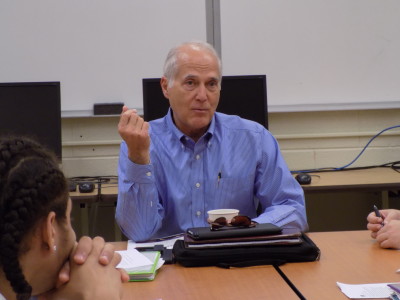
Andrews returned once again to U.Va as a professor of practice where he integrates academic scholarship with practical experience teaching in the Department of Media Studies. Along with Basic and Advanced Multimedia News Reporting, he teaches The News Media: a real time look at how the news media functions and the challenges it faces.
“It is a privilege to be trusted to tell people’s stories,” Andrews said. When it comes to a journalist pounding the pavement hunting down facts for their next article, “everything you survey is your canvas.”

